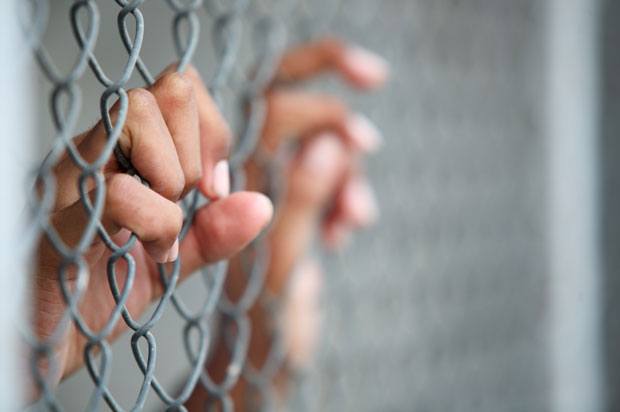Young offender’s institutes
What's it like in a young offender’s institute? Will you get bullied? We find out what it's like to be young and in custody.

There'll be wire, but you still have rights.
Being sentenced to custody for the first time is usually a huge shock. What’s more, if all you ever know about prison is from TV shows you’re bound to be a bit nervous when you enter His Majesty’s Prison Service.
The important thing about young offender institutes is that they house people aged 15 to 21 only and are nothing like adult prisons.
In England and Wales, offenders aged under 18 are held in separate units from 18 to 21 year olds, and Scotland has recently changed its law regarding young people in custody, ending the placement of 16 and 17-year-olds in young offender institutes.
What happens when I first arrive?
When you get there, you won’t be thrown straight into a cell. A supervisor will have a chat with you and this is a really good opportunity to talk through any concerns you have. There’s no shame in this and they can help make things less scary. If you’re a member of a gang, for example, it’s worth telling them if any rival gang members are in the same institutes. They can also call family members for you.
You’ll be searched and given prison clothes to wear if you’ve been convicted. If you’re on remand and waiting for your trial you’re allowed to wear your own clothes.
What’s it like in a young offender’s institute?
You’re out of your room for most of the day – busy with your free education and skills classes. In the evenings, you have the chance to spend time with others, or use the phone or gym.
The institutions are split into two, depending on your age. All the under-18 year-olds are kept in one section, and all the over-18s in another for legal reasons.
What are the rooms like?
There’s usually a TV, kettle, and a toilet and sink in each room. The toilet often doesn’t have any walls, so if you share a room you’ll have to go in front of your roommate.
If you behave well, you may be allowed a DVD player or games console in your room, or be given more gym sessions. If you behave badly, you’ll lose your TV, gym sessions, and maybe even your allowance to make phone calls.
You can only smoke if you’re aged 18 and over.
Will I get bullied?
We’re not going to lie to you – it can happen. Inmates aren’t separated by the severity of their crime in a young offenders prison, so you could go there for something relatively minor and find yourself amongst people convicted of murder.
This is understandably scary, but the important thing is to tell someone if you’re concerned about your safety. It won’t be ignored, but taken very seriously. You’ll have regular meetings with your supervisor so don’t be afraid to tell them if you’re worried. If you have any thoughts about hurting yourself, then it’s important to tell them about that too.
Help will be there, but the supervisors have to know about the problem in order to resolve it. Take a look at our bullying support and information resources here.
How often can I see my family?
This differs depending on whether you’re on remand or have already been convicted.
If you’re on remand, you get a lot more visits – roughly a couple a week. Once you’ve been convicted, this can drop to just two or so a month. This can drop even lower if you’ve not been behaving.
Your family and friends can send you money to use as phone credit. You can also use money you make through going to lessons to pay for phone credit. Again, how often you’re able to ring your loved ones will depend on your behaviour.
What’s the food like?
In a young offenders prison, the food is usually mass-produced, so it’s unlikely to be the best thing you’ve ever tasted. Breakfast is mostly just cereal and tea. You’re usually given a choice for dinner; you’ll be given a menu and can choose what you want for the upcoming week.
You can also use money from your classes to buy pot noodles, crisps and sweets to take back to your room.
What happens when it’s time to leave a young offender institute in the UK?
It’s quite easy to get comfy inside because of all the routine. When the time comes to leave, the youth justice system should prepare you by encouraging you to think about training, work and housing. These are all important factors in preventing you reoffending.
After leaving, you’ll be monitored for three months to see how you’re doing. You may be given a list of rules you can’t break (called a licence) and if you don’t comply you may head straight back inside.
You may think that there’s no support out there for you, and it’s easier just to go on reoffending, but Nacro is an organisation worth talking to about your opportunities. Use Nacro’s advice finder to find help in your local authority. Our articles on finances when leaving prison and how to break free from a life of crime might also help.
Photo of hands on gate by Shutterstock
Next Steps
- Chat about this subject on our Discussion Boards.
By
Updated on 16-Dec-2022
No featured article














